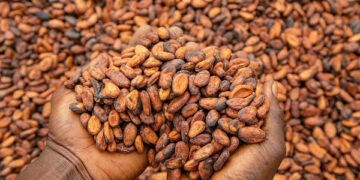The Executive Director of the Center for Environmental Management and Sustainable Energy (CEMSE), Benjamin Nsiah, has called on the government to develop a strategic medium- to long-term plan to increase crude oil production.
His call comes in response to findings from the latest Petroleum Investment Report, which showed that Ghana has saved approximately $1.4 billion since it began exporting crude oil in commercial quantities.
Speaking to Joy Business, Mr. Nsiah warned that Ghana’s crude oil production has been declining, and combined with falling global prices, the country risks missing its revenue targets for 2025.
“Production has not been encouraging. Even though last year we recorded just a 1% increase over 2023, the overall trend remains downward,” he stated.
According to him, the government had projected to sell crude oil at around $74 per barrel in 2025, however, due to shifting geopolitical dynamics especially in the European Union and the United States international crude prices have declined, currently hovering around $69–$70 per barrel.
“So based on price alone, we are already losing,” he said. “And when you combine this with weak production output, our revenue expectations are bound to fall short.”
Mr. Nsiah also highlighted that Ghana had projected petroleum upstream revenue of $16 billion, based on a cedi-dollar exchange rate of 15:1.
However, the cedi’s appreciation estimated at 42% has led to a sharp decline in projected revenue in cedi terms for both the first half and the full year of 2025.
“Our revenue expectations in cedi equivalent have dropped, which further strains the national budget and reduces fiscal space,” he noted.
Mr. Nsiah stressed the urgent need for deliberate planning to expand production capacity and maximize returns from the petroleum sector.
He cautioned that without concrete efforts to reverse the production decline, Ghana’s energy sector risks underperforming even further, with broader implications for national development.
Meanwhile, Ghana’s cocoa sector is also facing pressure from surging global prices, tightening supply, and worsening weather conditions across West Africa.
Read Also: Economic Crisis: Minority Recommends Return of Gold for Oil
Source: Comfort Sweety Hayford/ATLFMNEWS


























